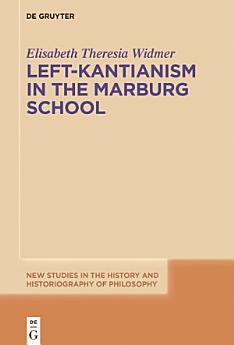Left-Kantianism in the Marburg School
About this ebook
In doing so, Widmer breaks with two mistaken assumptions. First, Widmer demonstrates that the left-Hegelian and Marxist traditions were not the only significant philosophical sources of socialist critique in nineteenth-century Germany, as the left-Kantians identified problems of normativity that the left-Hegelians could not adequately address.
Second, Widmer challenges the prevailing assumption that the political philosophies developed in the Marburg School can be comprehensively characterized as a unified school of "ethical socialism." By showing that they varied fundamentally regarding their political views and their philosophical foundations of socialism, Widmer fills a gap in the studies of neo-Kantianism that is long overdue.
About the author
Elisabeth Widmer, University of Oslo, Oslo, Norway.








